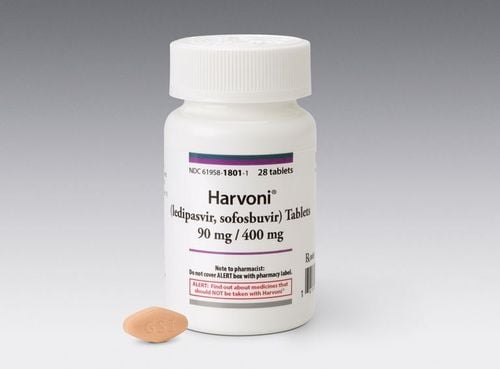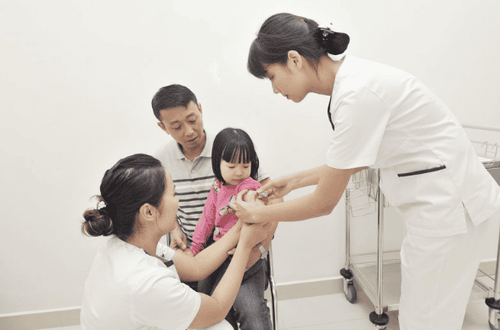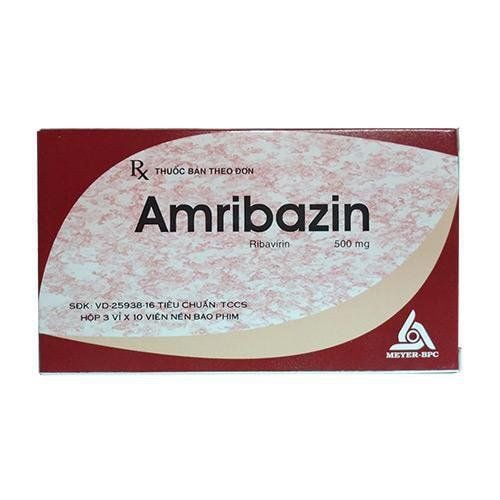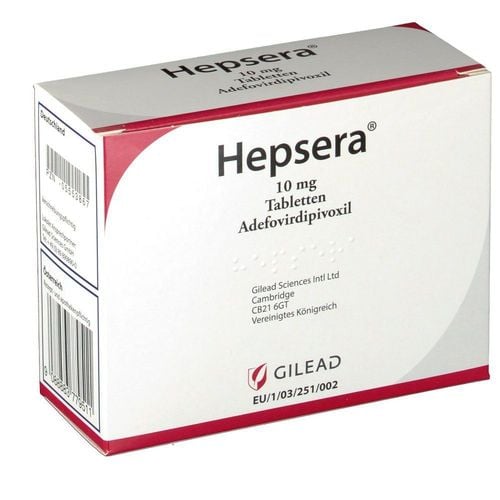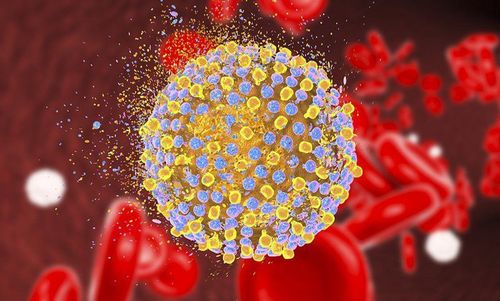This is an automatically translated article.
The article was professionally consulted by a doctor from the Department of Medical Examination & Internal Medicine - Vinmec Da Nang International General Hospital.The liver is an important part of the human body, when the liver is damaged, other parts of the body are also affected. Protecting the liver is protecting the very life of each person. Liver diseases, especially liver cancer, are very dangerous. However, many people still have a subjective mentality, not paying attention to their health as well as protecting their liver.
1. Drink alcohol in moderation
According to the Federal Government Dietary Guidelines for Americans 2015-2020, non-drinkers should not start drinking for any reason. In addition, the recommendation clearly states that to keep the liver healthy when drinking alcohol, it should be consumed in moderation and defines a moderate amount of drinking as up to one drink per day for women and up to two drinks per day for women. male.Heavy drinking is defined as 4 or more drinks on any day or 8 or more drinks in a week for women and 5 or more drinks on any day or 15 or more drinks in a week for male. Binge drinking is defined as consuming 4 or more drinks for women and 5 or more drinks for men in a single drink (usually within 2 hours).
2. Safe drug use
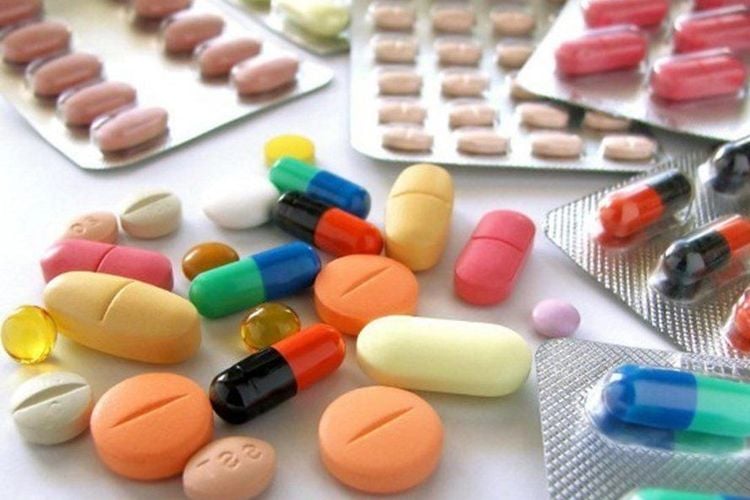
Một số loại thuốc có thể làm tổn thương gan nếu người bệnh uống cùng bia
In addition, some drugs can damage the liver if the patient drinks with beer. And some drugs are harmful when combined with other drugs, so it's a good idea to consult your doctor or pharmacist about the safest way to take them.
3. Implement the prevention of viral hepatitis
Hepatitis B, C and D: Do not share needles and personal items such as toothbrushes, razors, etc. with others. Do not share tattoo needles, lips, or eyebrows with others. Use condoms correctly when having sex. Hepatitis A and E: Cook food thoroughly and eat it while it is hot. Do not eat raw, rare foods such as raw fish salad, blood pudding... Drink boiled water to cool. Wash your hands often with soap and water after using the toilet, after changing a baby's diaper, before cooking and before eating. Wash vegetables and fruits with clean water, preferably under running water.4. Testing for viral hepatitis and vaccination
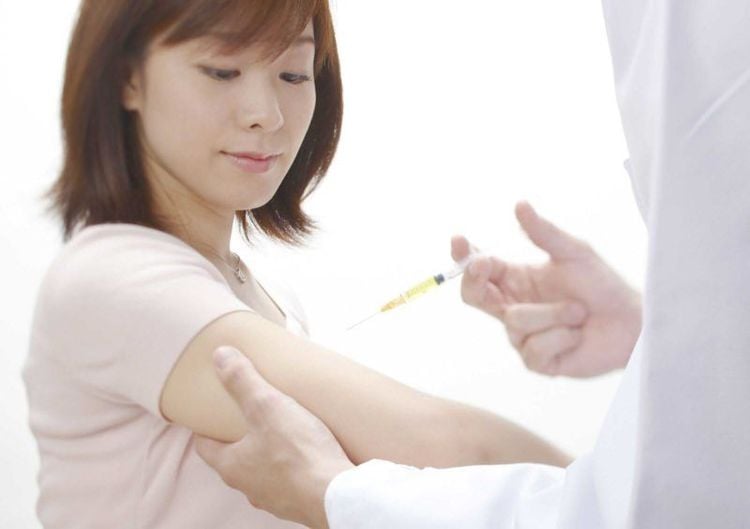
Xét nghiệm và tiêm phòng viêm gan do virus là một cách hữu hiệu để bảo vệ lá gan khỏe mạnh
Hepatitis A virus (HAV): Hepatitis A virus is transmitted by water and food contaminated with HAV (people with HAV in their feces have HAV). Unprotected sex can also transmit HAV. HAV hepatitis is usually mild, then completely normal and has immunity to the virus. However, a few can develop serious, life-threatening illnesses. There is a vaccine for hepatitis A virus. Hepatitis B virus (HBV): HBV is the only virus with a DNA structure that can be transmitted mainly through blood, sex and mother-to-child transmission. HBV is 100 times more contagious than HIV. Therefore, just a small scratch on the skin and mucous membranes when in contact with the blood of a person infected with the virus (injection needles, acupuncture needles, medical tools, nail clippers, toothbrushes, etc.) very favorable for pathogens. There is a safe and effective hepatitis B vaccine available. Hepatitis C virus (HCV): HCV is transmitted from a carrier to a healthy person in three ways: blood, sexual contact, and mother-to-child transmission through the placenta at birth. However, the risk of sexually transmitted infection is rarer than hepatitis B. The phenomenon of mother transmitting hepatitis C virus to her child has been recorded, but the rate is also low. Thus, the risk of hepatitis C virus infection is mainly blood-borne (recipients of blood or blood products infected with hepatitis C virus; sharing needles contaminated with hepatitis C virus; healthcare workers in contact with samples containing HCV). , some other causes such as acupuncture, ear piercing, tattooing, but the practice tools are not absolutely sterile). In addition, there is an incidence of about 30-40% of cases of HCV infection but the cause of infection is unknown. There is currently no vaccine against hepatitis C virus. Hepatitis D virus (HDV): HDV infection only occurs in people who are already infected with HBV. Infection with both viruses will make the disease worse. The HBV vaccine is effective against both HDV. Hepatitis E virus (HEV): The route of transmission is the same as HAV. A vaccine for HEV is available, but not widely available.
5. Prevention of touching or inhaling poison
Some household cleaning products, aerosol products and pesticides have chemicals that can harm the liver of the user. Therefore, users should avoid direct contact with these chemicals. In addition, the additives in cigarettes can also harm the liver, so active and passive smoking should be avoided.6. Be careful with supplements and herbs
Some products such as dietary supplements or herbs can harm the liver of the user because they contain substances such as cascara, chaparral, comfrey, kava and ephedra... which can be toxic to the liver. liver.In recent years, a number of herbs and supplements have hit the market with claims that these products help restore the liver, including milk thistle seed, borotutu bark seed, and chanca piedra. Consumers should be wary of such advertisements.
7. Diet

Cà phê giúp bảo vệ và chống lại nhiều bệnh về gan
7.1. Coffee Drinking coffee helps the liver fight fatty liver disease. A 2013 review published in the journal Liver International found that more than 50% of people in the United States consume coffee daily. Coffee keeps the liver healthy as it protects against liver diseases such as fatty liver disease, reduces the risk of chronic liver disease and such as liver cancer.
A 2014 study in the Journal of Clinical Gastroenterology found that coffee's protective effects were due to its effect on liver enzymes, reducing fat accumulation in the liver, and increasing protective antioxidants in the liver. Compounds in coffee also help liver enzymes eliminate carcinogens from the body.
7.2. Oatmeal Porridge Eating oatmeal is an easy way to add fiber to your diet. Oats and oatmeal are high in compounds called beta-glucans. According to a 2017 study in the International Journal of Molecular Sciences, beta-glucans are bioactive substances in the body that help regulate the immune system and fight inflammation, and they may be particularly helpful in fighting diabetes. sugar and obesity. Those looking to add oats or oatmeal to their diet should look for whole oats or oat bran, rather than prepackaged oatmeal. Pre-packaged oatmeal may add some other flavoring such as flour or sugar, which will not be beneficial to the body.
7.3. Tea A 2015 study in the World Journal of Gastroenterology indicates that green tea may help reduce overall fat content, fight oxidative stress, and reduce other markers of nonalcoholic fatty liver disease. It is important to note that fresh tea is better than green tea extract, as some extracts may harm the liver rather than heal it.
7.4. Garlic Adding garlic to the diet can also help stimulate the liver. A 2016 study that appeared in the journal Advanced Biomedical Research reported that garlic consumption reduced body weight and fat content in people with nonalcoholic fatty liver disease.
7.5. Fatty fish Research in the World Journal of Gastroenterology has shown that consuming fatty fish and taking fish oil supplements can help reduce the negative impact of certain liver diseases on health conditions such as fatty liver disease. not by alcohol. Fatty fish is rich in omega-3 fatty acids, which are good fats that help reduce inflammation. These fats can be especially helpful in the liver, as they prevent excess fat accumulation and maintain enzyme levels in the liver.
Research recommends eating fatty fish two or more times per week. If you can't include fatty fish like herring or salmon in your diet, try taking a daily fish oil supplement.
Foods to limit Foods rich in cholesterol such as animal viscera, animal skin, egg yolk. Limit fat, animal fat, prioritize choosing vegetable oil (except coconut oil). Limit alcohol as much as possible, preferably not at all. How to prepare food suitable for fatty liver disease: Limit the use of ingredients such as butter, fat, oil, mayonnaise and magarine in the menu. Limit fat and cholesterol in food by removing fat and skin from meat and poultry; decant fat when cooking soup, soup. The way to cook with the least amount of fat is to bake, steam, boil and boil. Screening for liver cancer every 6 months is one of the ways to detect the disease early, even when there are no symptoms. Where to screen for liver cancer to give accurate results is a matter of concern for many people.
Doctor Nguyen Quoc Lan has experience and strengths in the field of gastrointestinal endoscopy, worked at the Department of Gastrointestinal Endoscopy at Family General Hospital until 2016. Currently, he is a Gastrointestinal Endoscopy Doctor in the Department of Medical Examination. and Internal Medicine, Vinmec Da Nang International General Hospital.
Please dial HOTLINE for more information or register for an appointment HERE. Download MyVinmec app to make appointments faster and to manage your bookings easily.
Article reference source: Webmd.com; Medicalnewstoday.com



